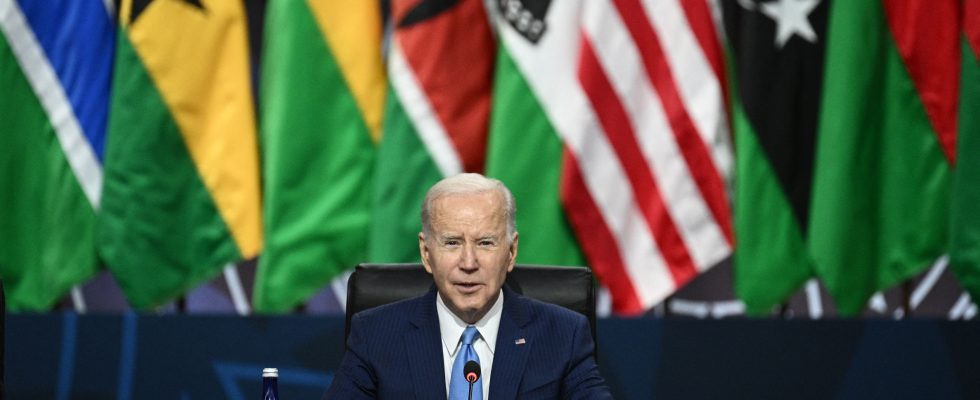It’s an almost unprecedented charm offensive. The entire White House has been marching in Africa since the beginning of the year. In January there was Treasury Secretary Janet Yellen, who visited Senegal, Zambia and South Africa. Linda Thomas-Greenfield, the American ambassador to the UN, then went to Ghana, Mozambique and Kenya, followed by Jill Biden, the first lady, to Namibia and Kenya. Last week Antony Blinken, the Secretary of State, was in Ethiopia and Niger. At the end of the month, Vice President Kamala Harris will travel to Ghana, Tanzania and Zambia. All that’s missing is President Biden, who has promised to go there this year.
After neglecting it during the Trump presidency, the United States is courting the continent. In August, the White House outlined its new strategy, saying America must “reignite relations with its African counterparts.” In December, she organized a summit in Washington with 49 heads of state from the region. “Our administration will invest its time and energy in strengthening partnerships on the continent,” said Kamala Harris at the time. And “we will be guided not by what we can do for Africa, but by what we can do with Africa”. The Americans will invest 55 billion dollars over the next three years, and have promised to support the creation of an African seat on the UN Security Council. “With this summit, the United States wanted to show that it attaches importance to these countries”, summarizes Joseph Siegle, director of research at the Africa Center for Strategic Studies.
China’s growing influence in the region
“The number of high-ranking visits is quite unusual,” said Michelle Gavin, an expert at the Council on Foreign Relations. Antony Blinken has already made four tours there, unheard of for a Secretary of State. The United States is aware that “Africa offers a number of strategic interests that require more serious involvement”, observes Cameron Hudson, of the Center for Strategic and International Studies. It is the region of the world with the highest population growth. There are 30% of the world’s minerals essential to many technologies, including 40% of gold, 90% of chromium and the largest reserves of cobalt, uranium… African countries also represent the largest regional group in the world. UN, where their weight is important. On February 24, almost a third of them (15 out of 50) abstained from voting on the resolution calling on Russia to “immediately, completely and unconditionally withdraw all its military forces from the territory of Ukraine”. A text adopted by an overwhelming majority, with 141 Member States in favor and 32 abstentions. Russia, whose Wagner militia is increasingly present and which is the largest supplier of arms on the continent, had launched a diplomatic offensive, particularly in Ethiopia and South Africa to ensure that these countries maintain their neutrality. Hence Antony Blinken’s visits to Pretoria and Addis Ababa.
Washington’s late reversal is justified by China’s growing influence in the region, where it has invested billions in infrastructure projects. In 2021, trade between China and sub-Saharan Africa was five times greater than that with the United States. It is not a question of forcing African countries to choose between two great powers, assures the American administration… while denouncing the “pernicious influence” of China. “But, by criticizing it like this, the United States is doing itself a disservice, because it amounts to telling Africans that they are naive to collaborate with Beijing. But I don’t know if the Chinese involvement is so harmful. Let’s be honest. clear: it is the Chinese, not the Americans, the French or the Germans, who build roads, power grids or ports”, continues Cameron Hudson. For Michelle Gavin, “President Biden has gone further than other administrations in his effort to integrate Africa into foreign policy”. It remains to be seen whether this change in tone will be followed by concrete results.
